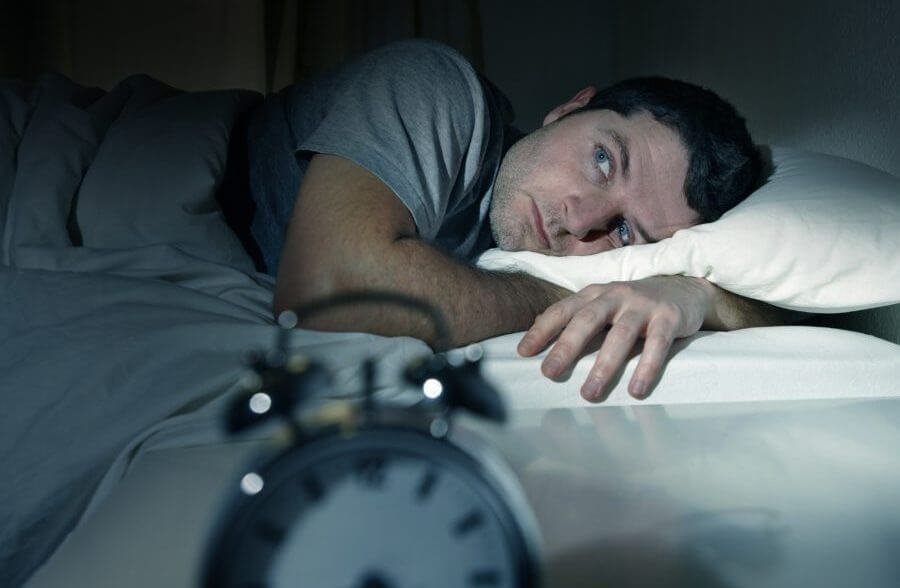Studies show that around 1 in 3 people have at least a mild form of insomnia. While some only deal with insomnia briefly, others find it to be a severe and ongoing struggle that negatively impacts many areas of their life. With continued advances in the use of cannabis to treat common chronic illnesses, cannabis treatment for insomnia is making positive changes in the sleep health industry. Let’s take a look at some important facts about the effects of insomnia, the need for medical treatment for this common condition, and the ways medical marijuana has helped patients across the world.
What is Insomnia?
Insomnia is a common sleep condition that causes individuals difficulty when they want to fall asleep. It can also impact your ability to stay asleep once you do fall asleep. Sleep plays a vital role in many areas of our lives. It is crucial you get a good night’s sleep for several reasons. Quality sleep supports good physical health and a person’s overall well-being. When you get the right amount of sleep every night, you ensure your mental and physical health, and your safety and quality of life. But, studies show that millions of people face sleep deprivation daily. Statistics show that 30-35% of adults have brief symptoms of insomnia, and 15-20% have short-term insomnia disorder that lasts less than three months. While even brief bouts of insomnia can greatly impact your life, it is the 10% of adults who deal with chronic insomnia disorder who face a major negative impact on their overall health. Regardless of whether you experience brief bouts of insomnia or chronic insomnia, the condition can easily lower your quality of life. That’s because common symptoms of insomnia include:- Fatigue
- Loss of concentration
- Inability to focus
- Memory issues
- Changes in mood
- Daytime sleepiness
- Decreased energy
- Loss of motivation
- Increase in mistakes and/or accidents
How Does Insomnia Impact Everyday Life?
There are several ways insomnia can impact your daily living. Sleep is a basic human need. Just as we need to eat, drink, and breathe, sleep is vital to our health and livelihood. Without the right amount of sleep, adults face a higher risk of:- Physical health issues
- Mental health issues
- Injuries
- Loss of productivity
- Unemployment
- Death
Common Treatments for Insomnia
Before the introduction of cannabis treatment for insomnia, treating insomnia was a series of long tests and trial treatments that were both time consuming and expensive. Many patients started their treatment by undergoing a sleep study. Sleep studies help medical professionals try to pinpoint any underlying causes of poor sleep habits. Some patients are diagnosed with sleep apnea, which can be treated to help improve sleep. Other patients are identified as simply having poor sleep habits based on their routine behaviors. These patients may be advised to make lifestyle changes to improve their habits. Still, many other patients are unable to identify an underlying cause of their insomnia. For patients who can’t identify an underlying health issues as the source of their insomnia, doctors may prescribe sleeping pills. Sleeping pills are a quick fix to help patients get a good night’s sleep. But, taken often, some patients develop a tolerance to these pills that can reduces the effectiveness of this treatment. And, a more serious complication of using sleeping pills is that they are habit-forming. When patients become dependent on these pills, they can face other health complications. So, better treatment for improved sleep health was certainly a major medial need for patients affected by this common health condition.The Introduction of Cannabis Treatment for Insomnia
As a leading dispensary in Canada, we have seen the use of medical marijuana studied and researched extensively over the last several years. Cannabis has been scientifically proven as an effective treatment for many common health conditions patients face. Based on the medical need, there are several ways patients can use cannabis for treatment.- Cannabidiol, also known as CBD, is a common cannabinoid found in marijuana. It has several health benefits and is non-psychoactive. CBD does not contain THC which is the element of marijuana that causes the “high” feeling associated with the drug.
- Tetrahydrocannabinol, also known as THC, is a psychoactive cannabinoid that is used to treat many other conditions. It replaces many common opioids and other strong pain killers that can become addictive when used for extended periods of time.

